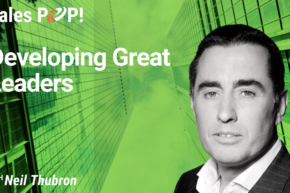In the ever-evolving world of startups and small businesses, understanding the nuances of investment can be the difference between scaling successfully and stalling out. In a recent episode of the “Expert Insight” interview series, John Golden sat down with Chris Van Dusen, senior partner at Solyco Capital, to unpack the intricacies of venture capital, private equity, and the modern strategies entrepreneurs need to thrive.
This blog post distills the episode’s most valuable lessons, offering actionable advice and expert insights for founders seeking to navigate the investment landscape, prepare for funding, and build sustainable, profitable businesses.
1. Venture Capital vs. Private Equity: Understanding the Landscape
Chris Van Dusen begins by clarifying a foundational distinction:
- Venture Capital (VC):
- Stage: Early-stage, high-growth companies.
- Investment Size: Smaller, minority stakes.
- Goal: Fuel rapid growth, often with higher risk tolerance.
- Involvement: Varies; some VCs are hands-on, others are passive.
- Private Equity (PE):
- Stage: More mature, established businesses.
- Investment Size: Larger, often majority stakes.
- Goal: Optimize operations, drive profitability, and prepare for a lucrative exit (sale or IPO).
- Involvement: Typically more active in management and strategic direction.
Key Takeaway:
Entrepreneurs must understand where their business fits in the capital supply chain. Early-stage founders may start with friends, family, or angel investors before progressing to VC and, eventually, PE as the business matures.
Actionable Advice:
- Map your business’s stage and growth trajectory.
- Target investors whose focus aligns with your current needs and future goals.
- Don’t waste time pitching to investors who aren’t a fit for your stage or sector.
2. Preparing for Investment: What Every Entrepreneur Must Know
A recurring theme in the episode is the importance of preparation before seeking investment. Chris notes that many founders jump into fundraising without adequate groundwork, leading to missed opportunities and wasted time.
Preparation Checklist:
- Research Investors:
- Understand their portfolio, investment thesis, and typical check size.
- Know their preferred industries and stages.
- Tailor Your Pitch:
- Customize your approach for each investor.
- Highlight how your business aligns with their interests.
- Build Relationships Early:
- Don’t wait until you need money to reach out.
- Engage with potential investors through updates, events, or mutual connections.
Expert Insight:
Chris emphasizes that investors appreciate founders who have done their homework. A well-prepared entrepreneur stands out and is more likely to secure funding.
3. Mastering Your Numbers: The Foundation of Credibility
One of the most critical aspects of investor readiness is a deep understanding of your business metrics. Chris is unequivocal: “Know your numbers.”
Essential Metrics to Master:
- Customer Acquisition Cost (CAC): How much does it cost to acquire a new customer?
- Churn Rate: What percentage of customers leave over a given period?
- Lifetime Value (LTV): How much revenue does a customer generate over their relationship with your business?
- Burn Rate: How quickly are you spending cash?
- Runway: How long can you operate at your current burn rate before needing more capital?
Why It Matters:
- Demonstrates competence and credibility.
- Instills investor confidence in your ability to manage and scale the business.
- Enables you to make data-driven decisions and pivot when necessary.
Actionable Steps:
- Regularly update and review your financial models.
- Use dashboards and analytics tools to track key metrics.
- Be prepared to explain the story behind your numbers—what’s working, what’s not, and why.
4. The Power of Communication with Investors
Chris draws a vivid analogy: in a storm, a buffalo faces the challenge head-on, while a cow runs away. Entrepreneurs should be like the buffalo—proactively communicating with investors, especially when facing difficulties.
Best Practices for Investor Communication:
- Regular Updates:
- Send monthly or quarterly reports, even if there’s no major news.
- Transparency:
- Share both wins and setbacks. Investors value honesty and will often offer support or solutions.
- Engagement:
- Ask for advice, introductions, or feedback. Treat investors as partners, not just check-writers.
Why It’s Crucial:
- Builds trust and long-term relationships.
- Ensures investors are aligned and can help when challenges arise.
- Sets you apart from founders who go silent during tough times.
5. Growth vs. Profitability: The New Investment Paradigm
The investment landscape is shifting. Where “growth at all costs” once reigned, today’s environment—marked by higher interest rates and tighter capital—demands a more balanced approach.
Key Shifts:
- From Growth to Profitability:
- Investors now scrutinize unit economics and path to profitability.
- Startups are reducing burn, optimizing operations, and focusing on sustainable growth.
- Operational Efficiency:
- Leaner teams, smarter resource allocation, and a focus on core competencies.
Actionable Advice:
- Reevaluate your business model for sustainability.
- Prioritize initiatives that drive both growth and profitability.
- Be prepared to justify your spending and hiring decisions with clear ROI.
Expert Perspective:
Chris notes that this shift is not just a reaction to market conditions but a return to fundamentals. Businesses that balance ambition with discipline are best positioned for long-term success.
6. Leveraging Modern Resources: Fractional Services and Remote Talent
One of the most exciting trends discussed is the rise of fractional services and remote work. Chris shares how startups can now access top-tier talent without the overhead of full-time hires.
What Are Fractional Services?
- Hiring experts (e.g., CFOs, CMOs, developers) on a part-time or project basis.
- Accessing specialized skills as needed, rather than committing to full-time salaries.
Benefits:
- Cost Efficiency:
- Pay only for what you need, when you need it.
- Flexibility:
- Scale resources up or down as your business evolves.
- Access to Expertise:
- Tap into a global talent pool, often with more experience than you could afford full-time.
How to Leverage Fractional Services:
- Identify core areas where you need expertise but not a full-time role.
- Use platforms and networks specializing in fractional talent (e.g., Toptal, Upwork, advisory networks).
- Build a culture that embraces remote and flexible work.
Real-World Example:
Chris cites a successful CBD brand that achieved rapid growth by leveraging technology and fractional resources, maintaining agility and cost control.
7. Expert Recommendations for Startup Success
Drawing from Chris Van Dusen’s experience, here are actionable recommendations for founders:
- Start with the Right Capital Partner:
Seek investors who offer mentorship and resources, not just money. The right partner can accelerate your growth and help you avoid common pitfalls. - Leverage Modern Tools:
Use SaaS platforms, automation, and analytics to streamline operations and gain insights. - Build a Resilient Team:
Combine full-time core staff with fractional experts to maximize flexibility and expertise. - Stay Agile:
Be ready to pivot strategies as market conditions change. Agility is a competitive advantage. - Prioritize Relationships:
Whether with investors, advisors, or team members, strong relationships are the foundation of long-term success.
8. Conclusion: Building for the Future
The path to startup success is more complex—and more promising—than ever. As Chris Van Dusen and John Golden discuss, the keys are preparation, mastery of your business fundamentals, open communication, and strategic use of modern resources.
By understanding the differences between venture capital and private equity, preparing thoroughly for investment, knowing your numbers, communicating proactively, balancing growth with profitability, and leveraging fractional talent, today’s entrepreneurs can build resilient, scalable, and profitable businesses.
Ready to take your startup to the next level?
Start by applying these expert strategies, and don’t hesitate to reach out to experienced partners like Chris at Solyco Capital.
Our Host
John is the Amazon bestselling author of Winning the Battle for Sales: Lessons on Closing Every Deal from the World’s Greatest Military Victories and Social Upheaval: How to Win at Social Selling. A globally acknowledged Sales & Marketing thought leader, speaker, and strategist, he has conducted over 1500 video interviews of thought leaders for Sales POP! online sales magazine & YouTube Channel and for audio podcast channels where Sales POP! is rated in the top 2% of most popular shows out of 3,320,580 podcasts globally, ranked by Listen Score. He is CSMO at Pipeliner CRM. In his spare time, John is an avid Martial Artist.







Comments